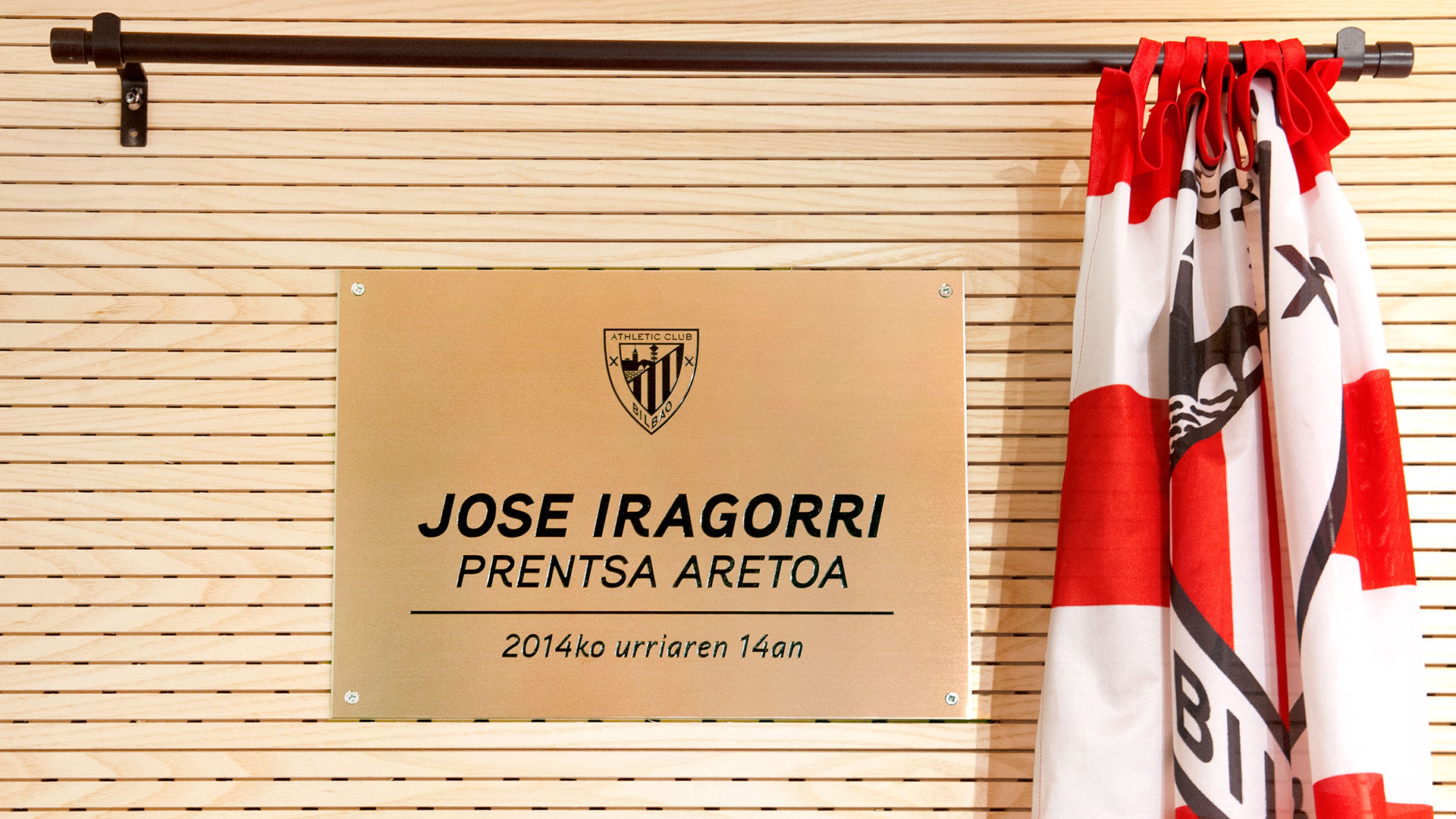
Athletic joins the International Radio Day
Athletic joins the International Radio Day
Athletic was founded in 1898, and later, on Christmas Eve 1906, the first audio forecast…
Athletic was founded in 1898, and later, on Christmas Eve 1906, the first audio forecast in history was transmitted from Brant Rock Station (Massachusetts), which included a violin interpretation of the Christmas carol “O Holy Night” and the reading of a passage from the Bible. Today, Wednesday, February 13th, International Radio Day, in times of video consoles, social networks and streaming series, Athletic Club and the radio still follow the same path that they have shared since last century. The boom of live football broadcasts, initiated in the late 1920s by the BBC, was achieved thank to the celebration of the 1950 World Cup in Brazil. Imagine the charrúa people, listening between noises and interferences how Alcides Ghiggia marked the goal of the Maracanazo that turned Uruguay into the world champion. It is easy then to understand that a glorious era was being consolidated for a tandem that was meant to along: the ball and the radio.
At the beginning of the 1950s, Radio Bilbao began to broadcast matches from San Mamés. At the beginning two radio booths were set up, one for Radio Bilbao and the other for the Santa Marina hospital. The patients that used to wait for pigeons to find out about the goals, stopped looking at the sky and turned on the radio instead. Sunday afternoons and football.
Carrusel Deportivo
In 1954 the flagship football radio programme, the “Carrusel Deportivo”, was born. Thanks to successive connections results from different stadium were reported, and for decades thousands and thousands of zurigorri followers were moved by the achievements of the lions narrated through the sound waves by prestigious speakers who overcame the technical difficulties of those years with improvised stories loaded with epic and suspense.
From that time until nowadays, there have been many and very loved speakers linked to the Athletic matches retransmisions. Antonio de Rojo was the voice of San Mamés in the first Carrusel, and together with him in Radio Bilbao Eduardo Ruiz de Velasco and his substitute, Guillermo Fernandez, stood out. Those were years of glory for the Athletic and for the radio, full of curiosities and anecdotes. As the one starred by Ruiz de Velasco, the day he covered the second leg of the European Cup in Manchester in which Athletic was eliminated in Maine Road, after their mythical victory in the snow-filled first leg. That afternoon, the radio aroused the zurigorri followers, who were hoping for a new victory. The BBC placed Ruiz de Velasco in the middle of one of the stands surrounded by English fans. The speaker narrated all the match and it wasn´t until the finish when he found out that a breakdown in the international signal that could not be repaired prevented his voice from being heard in Bilbao.
The figure of Sara Estévez and her chronicles on Radio Juventus also deserved recognition. She used to sign with the pseudonym Maratón, and along with her, Julio Garro and the speaker Paco Blanco also stood out.
Matias Prats and Jose Maria Garcia are also radio legends, the latter unforgettable in a photography next to the field in San Mamés, microphone in hand, wrapped in his coat and cleats to protect himself from the rain and the accumulated mud.
Bacalao, bacalao
Already in the 80s, Fede Merino and his famous “bacalao” must be mentioned. Jose Iragorri soon followed his steps, and nowadays gives his name to the pressroom in San Mamés. The list is numerous and there are surely missing names: Carlos Bacigalupe, Amalio Roca, Patxi Alonso, Alfonso Amezaga… In addition to all those who currently cover the zurigorri news and whom Athletic Club congratules on the International Radio Day.
Professionals of the sound waves that have always followed the lions, sometimes solving unexpected obstacles not to disappoint the zurigorri audience. For example, when the Girondins Bourdeaux, in 1984, demanded to Radio Popular a million pesetas for radiating the match of the Cup of Europe in the Lescure Park. They refused. As they did not get any press passes, they obtained two tickets thanks to a contact in Bordeaux and got into the stands with the broadcast material hidden between their clothes and secretly broadcast the match among the public.
But the most remembered anecdote that does justice to the role that the radio has played in the zurigorri history is the one starred by the Jesuits Ignacio Ellacuria and Jon Sobrino in May 1984. In the middle of an army shooting against the population from El Salvador, who were refugeed in the bell tower of the cathedral, Ellacuría asked Sobrino how things were, and the answer of Sobrino left the door open to hope: “Not everything is lost, Noriega has just scored”. It found out thanks to a small transistor with which they followed their loving team. Upon hearing the news, Ellacuría smiled and added: “I told you, God never completely abandons his creatures”.
